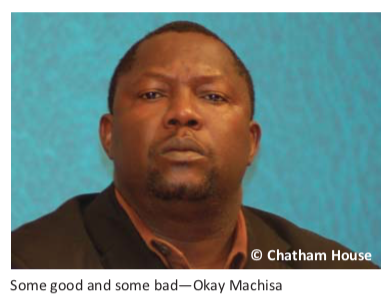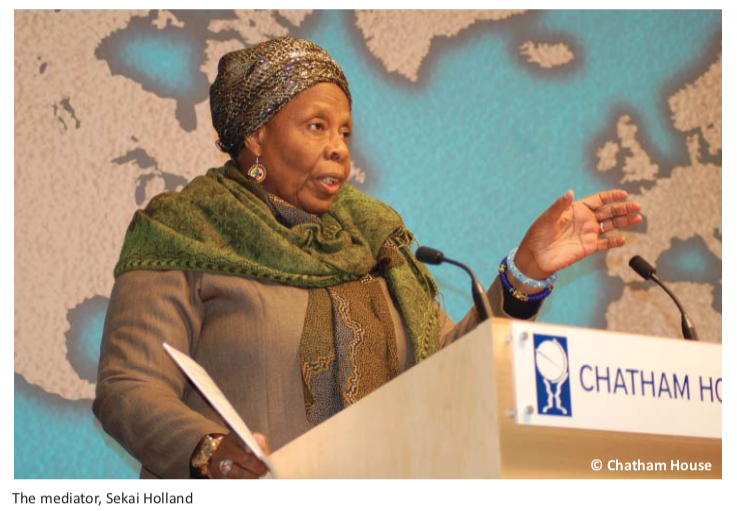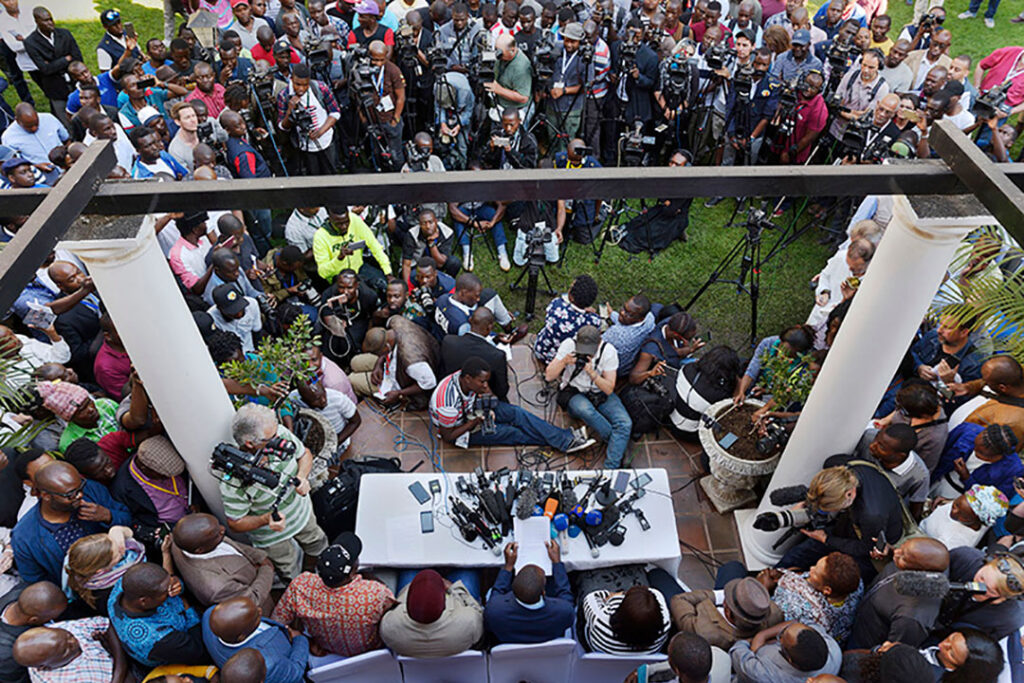A new constitution paves the way for presidential elections
by James Stent
Three army-green tents stand on a large and littered field caught between a main road and a wall of derelict apartment blocks in Mbare, a working-class suburb of Harare. Orderly queues stretching to over 100 m lead to these bivouacs turned into polling stations. The residents shuffle forward, quietly, identity cards in hand, ready to vote on a new constitution, Zimbabwe’s first since independence in 1980.
The day before, not far from this field, a mob attacked campaign workers putting up pro-constitution posters. A BBC reporter got caught in the mêlée, too. Today the foreign correspondents are back, anticipating a repeat of yesterday’s assault or the violence that racked the 2008 elections.
But the voters barely notice the clusters of international TV crews, preferring instead sombre inspection of the ground, or fits of conversation with their neighbours. In this blue-collar neighbourhood of Zimbabwe’s capital city, people wait to place a cross in a box on a little piece of paper.
This poll, held on 16 March, was doomed to dullness. There was nothing to fight against, this time. The major parties, President Robert Mugabe’s Zanu-PF and both factions of the Movement for Democratic Change (MDC), actively supported the new constitution. This was unsurprising given that they were its primary authors. No violence of any significance had been reported. This shed an ironic light on the arrests of a few NGO workers caught distributing “illegal” radios intended to allow listeners to hear news besides the one-sided reports from the state broadcaster.
As expected, the voters gave the new constitution a landslide “yes”. The “vote no” advocates were marginal. Of the 3.3 million Zimbabweans that participated, 93% voted in favour, 5% against and 2% spoilt their ballots. With little fanfare, Zimbabweans established a new foundation for the laws of their land.
International and local journalists and political analysts had come to observe the referendum and see what it might portend for the upcoming presidential elections. After the blood, fury and chaos of the 2008 presidential elections, the Southern African Development Community (SADC) brokered a compromise that resulted in Zanu-PF sharing power with the MDC. This compact mapped out specific reforms, including a new constitution, that needed to be adopted before the next elections could be held. The last constitution dated back to the 1979 Lancaster House agreement that established the independent state of Zimbabwe. Since that time, the constitution had been amended 19 times.
Most of the people in Harare and Mbare’s voting queues were reluctant to discuss the constitution. Some had not read or seen this 172-page document; some had read only parts or summaries of it; others had been briefed at community meetings.
Many voters said they preferred the new constitution because of its civil rights and empowerment sections. The constitution gives young people under the age of 35 an ambiguous right to education and economic empowerment. Women are guaranteed 60 out of the 210 seats in the National Assembly.
Colin Mtizwa, a driver, had not seen a copy of the constitution. The Zimbabwean Electoral Commission (ZEC) had only printed 90,000 copies for a population of over 12 million. After receiving a copy, Mtizwa thought it over for a few days before eventually deciding that the constitution, for the most part, was worth endorsing.
Political pundits expressed similar views. Cousin Zilala, country director of Amnesty International, described the constitution as a step in the right direction. He did not agree with the continued existence of the death penalty, even if its application was much more limited than before. Women can no longer be sentenced to death, nor the elderly, nor mutineers or traitors. Now, only men aged between 21 and 70 who are convicted of aggravated murder face the death penalty.
Okay Machisa, national director of the Zimbabwe Human Rights Association (ZimRights), was another proponent of the new constitution. He praised its bill of rights guaranteeing freedom of expression and other rights for detainees, including outlawing torture. This new constitution was a chance to restore hope to an embattled country, Machisa said. Like many others, he admitted that it was far from perfect, but it provided enough flexibility for future changes. In particular, Machisa was unhappy with the new constitution’s limits on presidential terms and powers. ZimRights was already planning to prepare an amendment to further limit executive powers, he said.

Although the new document reduces presidential tenure to two terms of five years each, it does not apply retrospectively, permitting Mugabe to remain in power for another decade. Though the executive has lost veto powers over legislation, it still holds an inordinate amount of clout. The president now needs a two-thirds majority to declare a state of emergency or dissolve parliament, something that he could do unilaterally before. The president can unilaterally appoint cabinet ministers and attorneys-general. He can deploy the military without parliament’s approval. Tsvangirai is reportedly happy with the constitution’s strong executive powers, which he said he would use to enact wide-ranging reforms if elected in the upcoming presidential polls.
The National Constitutional Assembly (NCA), a civil society organisation that shares its roots with the MDC, was the major driver of the “no” campaign. It also condemned the executive branch’s strong powers. Its main objection, however, was that the three major political parties had written the constitution without consulting civil society groups, said Blessing Vava, the NCA’s spokesman. In addition, Zimbabweans had been given only three weeks to inspect the document, he complained. Due to the constitution’s inadequate distribution, most Zimbabweans would be going to the polls without fully understanding it.
Senator Sekai Holland, co-minister of state for national healing, reconciliation and integration, flew in from New York in time for the referendum. She is a matriarchal figure in Zimbabwean politics, acting as a bridge between Zanu-PF and the MDC.

Her ministerial portfolio is oriented to minimise political violence and she said she was proud that it had not marred the referendum. By the time she arrived at her constituency in Tafara-Mabvuku, 17 km east of Harare, it was late afternoon and the polling stations were nearly empty.
Many in her constituency were ineligible to vote. In Zimbabwe, 1.5 million people are excluded from the voting registers because their father was not born in Zimbabwe. This is common in a region with high levels of migrant labour. From the 1980s, many pieces of legislation had reduced the pool of eligible voters, but the Citizenship Act of 2000 was the most stringent. Intended to disenfranchise white Zimbabweans who held British and Zimbabwean passports, it excluded mostly the Zimbabwean-born children of Zambian, Mozambican and Malawian nationals. The new constitution fixes this anomaly, giving citizenship to all Zimbabwean-born people, including those with only one Zimbabwean-born parent.
The implications for future elections are significant. Holland said that her first course of action after the referendum would be to start a voter registration drive targeting the new citizens, who are expected to bolster the ranks of opposition parties.
Still, Zimbabwe’s four million strong diaspora remain without voting rights. The group has long demanded the franchise and as long as their remittance payments continue to be a cornerstone of the economy, they will be insistent that they should have a say in Zimbabwe’s future.



